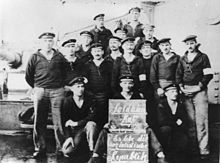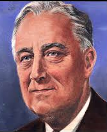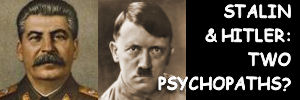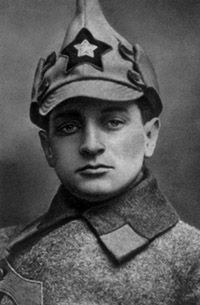Previously published (14/3/96) by the University of Chicago Chronicle.
As a child growing up in rural China, Dali Yang, Assistant Professor in Political Science, heard the stories of his parents and others about the horrors of the Great Leap Forward, a time of suffering for China that came soon after the Communist revolution in 1949.
"My parents were peasants who worked in the field. We grew wheat in the area where I lived, and they were part of a production team," said Yang, who was born in 1964, three years after the Great Leap Forward had ended. "They would often bring up the topic of the Great Leap famine and tell how bad things were during that time."
Yang's curiosity about the period led him to write the book Calamity and Reform in China: State, Rural Society and Institutional Change Since the Great Leap Famine, to be published this spring by Stanford University Press. The book, one of the first major works to analyze the period, relates how the Great Leap Forward and the subsequent famine still influence China today.
Unlike the later Cultural Revolution, which is well known in the West, the Great Leap Forward has been less of a focus for research by Western scholars -- yet, according to Yang, it was one of the most influential periods of Chinese history. It was the pivotal event that led China to adopt reforms in rural areas after Mao's death in 1976, resulting in the dismantlement of the people's communes that the Chinese government had fervently advocated during the Great Leap Forward.
Communist dream leads to mass death
The Great Leap Forward was begun in 1957 by Chairman Mao Zedong to bring the nation quickly into the forefront of economic development. Mao wanted China to become a leading industrial power, and to accomplish his goals he and his colleagues pushed for the construction of steel plants across the country.
The rural society was to keep pace with the dream by producing enough food to feed the country plus enough for export to help pay for industrialization. As a result of the Communist revolution, landowners had been stripped of their property, and by 1957 peasants already were forced to work in agricultural cooperatives.
These changes were intended to improve conditions for everyone by collectivizing agriculture and establishing communal eating facilities where peasants could eat all they wanted free of charge. This utopian dream turned into a nightmare as the central leadership grew increasingly out of touch with reality, Yang found through his study of government records and personal accounts.
At the beginning of the Great Leap Forward, Mao proclaimed that China would overtake Britain in production of steel and other products within 15 years. Other Chinese leaders, including Deng Xiaoping, supported Mao's enthusiasm, according to documents Yang studied in China.
A year later, Mao radically revised the timeline for catching up to Britain -- what was to be accomplished in 15 years now had to be done in just one more year, he said.
"Frequent changes in the timetable were symptomatic of the Great Leap, which, in retrospect, was fantasy incarnate. Even more exaggerated targets were subsequently presented, and then frequently revised upward, for steel, grain, cotton and other products. Any semblance of serious planning was abandoned," Yang said.
In pursuit of its goals, the government executed people who did not agree with the pace of radical change. The crackdown led to the deaths of 550,000 people by 1958.
The government also plunged the country into a deep debt by increasing spending on the development of heavy industry. Government spending on heavy industry grew in 1958 to represent 56 percent of state capital investment, an increase from 38 percent in 1956.
People were mobilized to accomplish the goals of industrialization. They built backyard furnaces for iron and steel and worked together on massive building projects, including one undertaken during the winter of 1957-58 in which more than 100 million peasants were mobilized to build large-scale water-conservation works.
Local leaders competed with one another to see who could create the most activity. In the rush to recruit labor, agricultural tasks were neglected, sometimes leaving the grain harvest to rot in the fields, Yang said. In the frenzy of competition, the leaders over-reported their harvests to their superiors in Beijing, and what was thought to be surplus grain was sold abroad.
Although in theory the country was awash in grain, in reality it was not. Rural communal mess halls were encouraged to supply food for free, but by the spring of 1959, the grain reserves were exhausted and the famine had begun.
No one is sure exactly how many people perished as a result of the spreading hunger. By comparing the number of deaths that could be expected under normal conditions with the number that occurred during the period of the Great Leap famine, scholars have estimated that somewhere between 16.5 million and 40 million people died before the experiment came to an end in 1961, making the Great Leap famine the largest in world history.
People abandoned their homes in search of food. Families suffered immensely, and reports of that suffering reached the members of the army, whose homes were primarily in rural areas. As soldiers received letters describing the suffering and the deaths, it became harder for leaders to maintain ideological discipline. Chaos developed in the countryside as rural militias became predatory, seizing grain, beating people and raping women. From famine to reform
During the struggle for survival, farmers in nearly one-third of the rural communities took matters into their own hands, abandoning the people's commune in favor of individual farming. Heavy central control was reduced, and the country's agricultural production improved.
Following Mao's death in 1976, central leaders disagreed over rural policies. Taking advantage of this policy paralysis, peasants and local cadres made alliances in those areas that had suffered severely from the Great Leap Famine and contracted land to the farm household. In just a few years' time, the people's communes were dismantled. Agricultural performance improved dramatically and gave momentum to the reforms under Deng.
The memory of the famine reinforced the important role peasants play in China's development, Yang said. That memory also has undermined the appeal of central planning in rural policy-making.
"Historical developments during more than four decades of Communist rule in China have again and again shown us how the unanticipated consequences of elite policies subverted their attempts at fundamental social engineering," Yang writes in Calamity and Reform in China. Institutional changes in China are the result of a contest between the elite and the masses, between the state and the society, he said.
"This study thus points to the crucial importance of guarding against those who claim to know some magic route to the radiant future, be they politicians like Mao or party intellectuals who supported Mao or the new technocrats who claim to have found a scientific way to make China rich and powerful and who happily clamor for more power for themselves."
The best way to prevent the country from following another movement like the Great Leap Forward is to create mechanisms that check those in power, Yang said.
"Had there been a free press and other institutions of oversight that are commonly found in open political systems, the Great Leap famine would certainly not have attained the magnitude it did," said Yang, who continues to follow events in China through visits there as he develops his academic career in the United States.
Yang became interested in the social sciences as a college student in Beijing, where he studied engineering. He received his B.S. in industrial engineering in 1983 from Beijing University of Science and Technology and developed an interest in English, which led him to receive his diploma for advanced studies in English in 1984 from Beijing Foreign Studies University.
He came to the United States to pursue graduate studies in political science in 1986 and received his Ph.D. from Princeton in 1993, the same year he joined the Chicago faculty.
Although he does not see rapid democratization coming to China, he has noticed some indications of ways in which the system there is beginning to rein in the excess power of overzealous leaders. "To some extent the trend toward decentralization, market-based competition and legal rule has spread decision-making power throughout the system," he said.
The new leadership is, however, "tentative, reactive and at times schizophrenic," Yang said. "They are less driven by firm ideological convictions than by sheer desire to remain in power.
"The balance between the state and society thus appears precarious, but it is also less susceptible to elite manipulations and more likely to produce policies dealing with the concrete problems that crop up in a state that is undergoing rapid economic development and social change."
-- William Harms
 With the atrocious China-bashing going on in Australia at the moment, mirroring US policy, we decided to republish the concisely expressed views of an American living in China. The comments under the video indicate a general approval of his appraisal by people who are familiar with Chinese life. His main criticism of China is the media censorship, which commenters suggest has worsened along with US China-bashing.
With the atrocious China-bashing going on in Australia at the moment, mirroring US policy, we decided to republish the concisely expressed views of an American living in China. The comments under the video indicate a general approval of his appraisal by people who are familiar with Chinese life. His main criticism of China is the media censorship, which commenters suggest has worsened along with US China-bashing.
 It is very hard to cite a 'successful' Communist economy when every single one has been attacked militarily and undermined by US-NATO forces. Nonetheless some have survived. Most have not.
It is very hard to cite a 'successful' Communist economy when every single one has been attacked militarily and undermined by US-NATO forces. Nonetheless some have survived. Most have not. Although we commemorate those who died on Remembrance Day 11 November, the courage and sacrifice of those who fought to prevent World War One from ever happening and who tried to remove from power the criminals who had caused that war, and others that followed, is never acknowledged.
Although we commemorate those who died on Remembrance Day 11 November, the courage and sacrifice of those who fought to prevent World War One from ever happening and who tried to remove from power the criminals who had caused that war, and others that followed, is never acknowledged.
 There is a popular argument against communism that accuses Soviet communists of murdering more people than the Nazis. This argument refers to the deaths that resulted from Joseph Stalin's orders. However, the argument fails when you try to find out which communists performed or agreed to Stalin's murderous purges. Because nearly all of the founding communists assumed to have been complicit in these mass murders were themselves murdered by Stalin during the purges.
There is a popular argument against communism that accuses Soviet communists of murdering more people than the Nazis. This argument refers to the deaths that resulted from Joseph Stalin's orders. However, the argument fails when you try to find out which communists performed or agreed to Stalin's murderous purges. Because nearly all of the founding communists assumed to have been complicit in these mass murders were themselves murdered by Stalin during the purges.



Recent comments